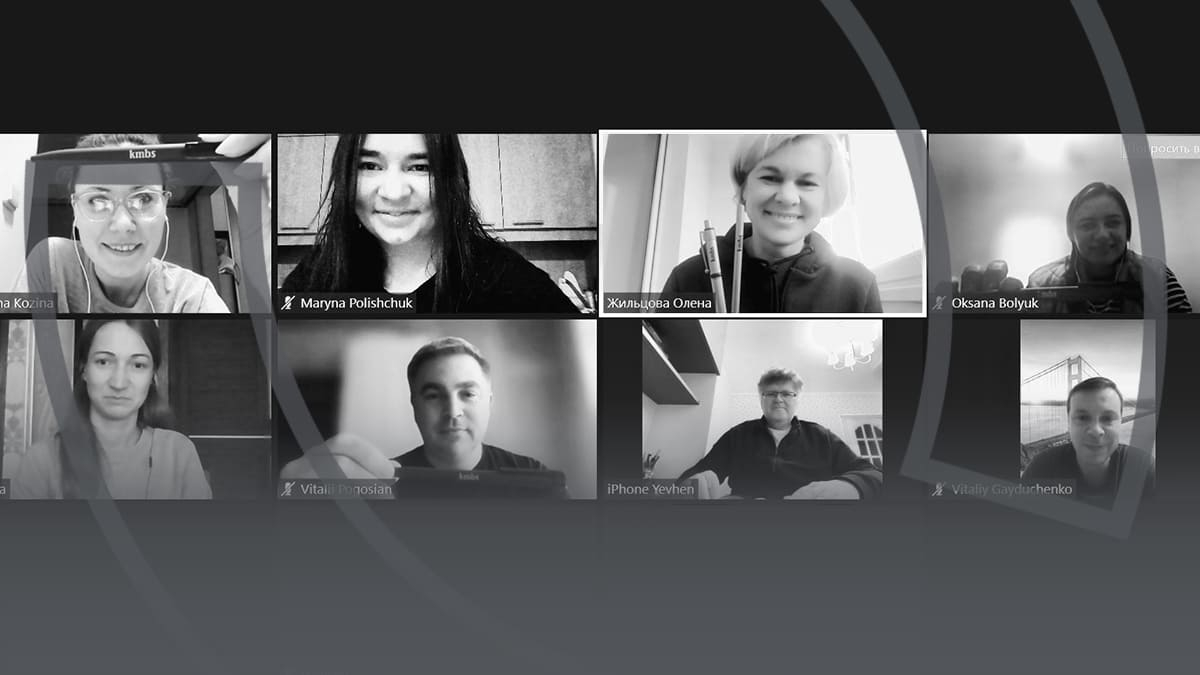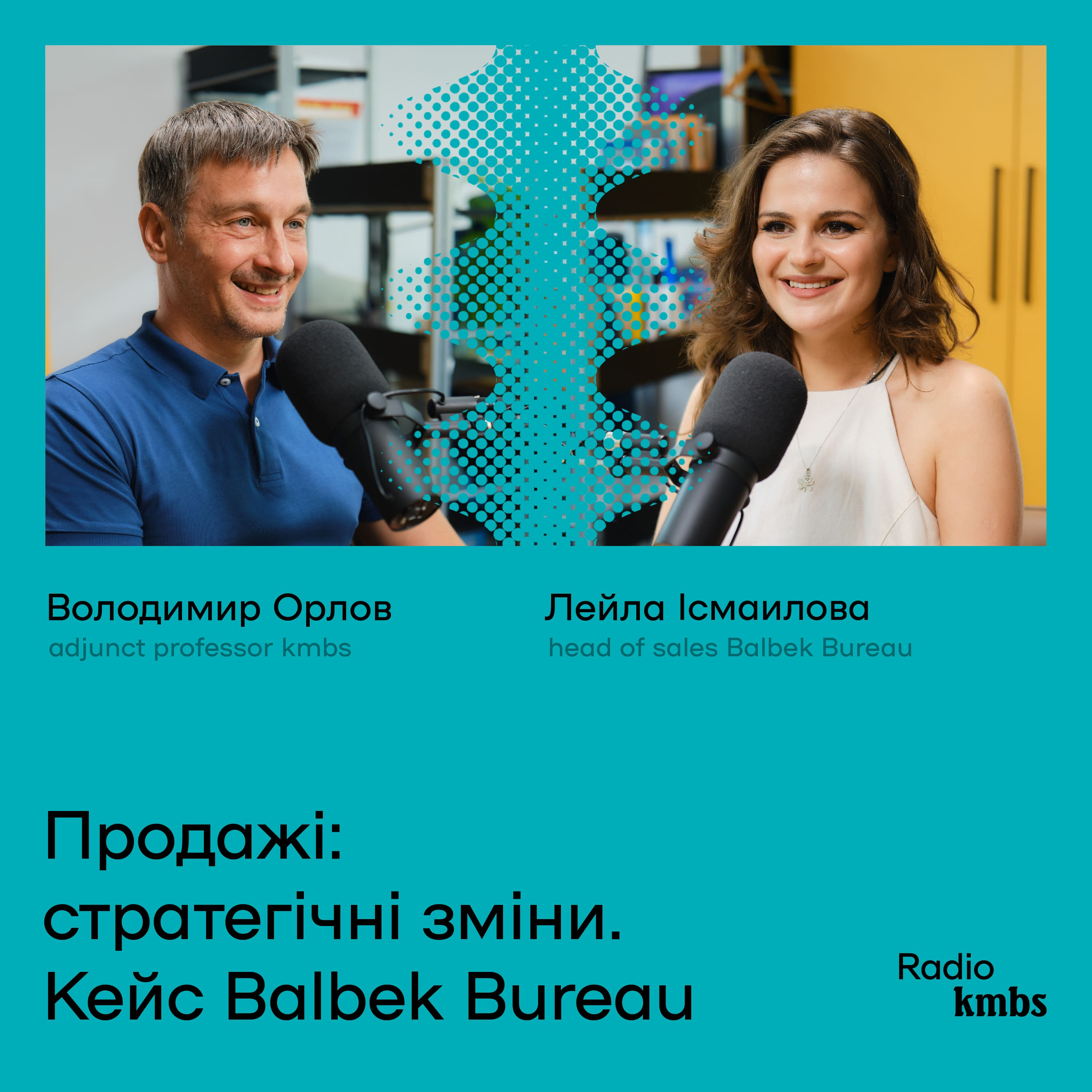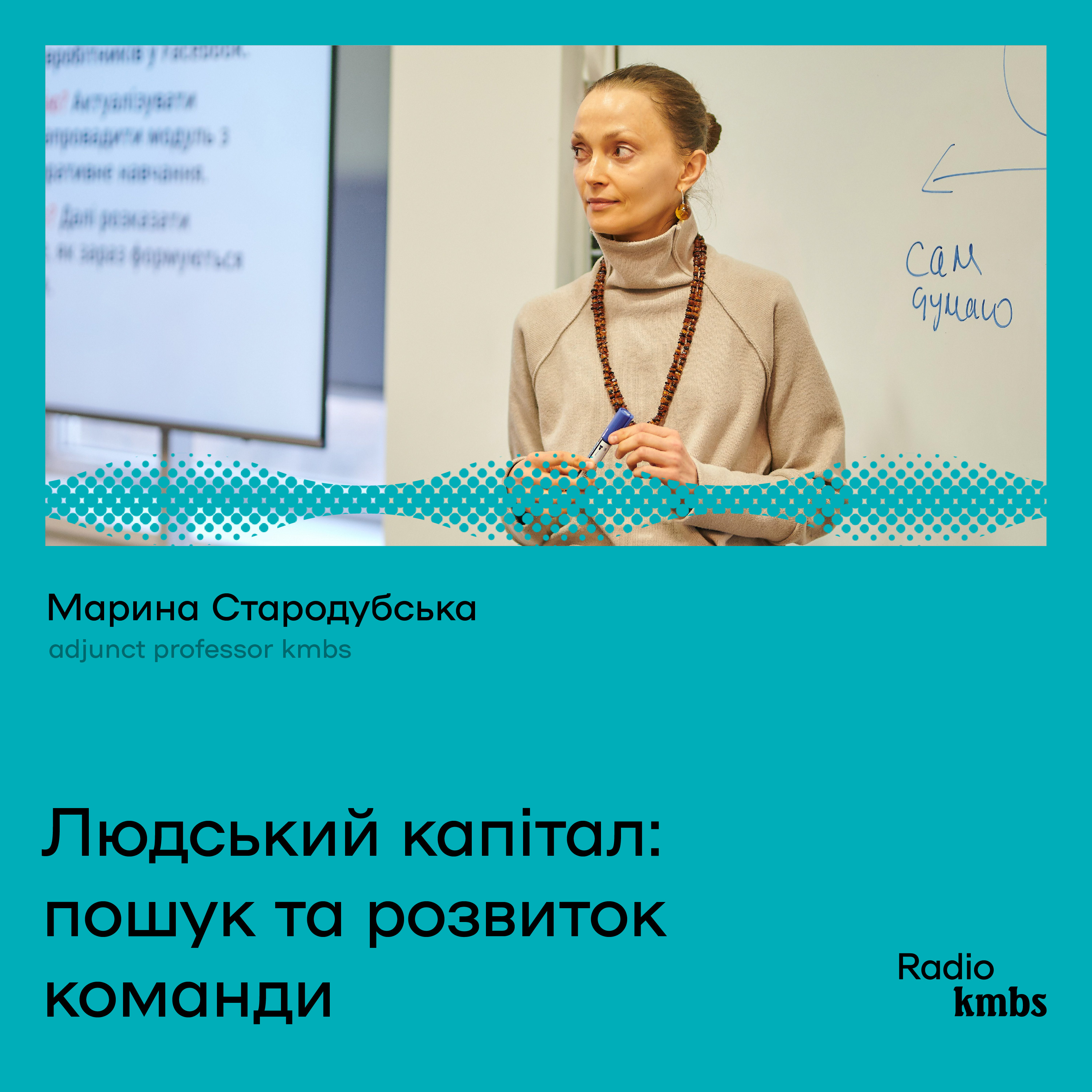— Here is what I have, — the EMBA-37 participant points to the camera with a pencil with the kmbs logo.
— And I have — her classmate shows our gray pen.
"And here's what I found in my anxious suitcase," a notebook from the last exit module appears on the screen.
"I have it too, but I can't show it," said a voice from behind a black window. It belongs to the head of a large state-owned enterprise, who joined the Ukrainian Armed Forces after Russia's full-scale invasion of Ukraine.
This is how the next lesson in kmbs begins. So our participants and teachers, scattered in different parts of Ukraine and the world — from other people's homes, from cars, from random cafes, from the front — several times a week in the evening, when the main things are done, gather to communicate.
MBA program leaders prepare extracurricular activities for each group on topics relevant to the current situation. Together with Yevhen Pentsak, the participants talked about a new map of the world, Oleksandr Savruk offered to discuss leadership approaches in crisis and development situations and practiced cross-cultural communications with Maryna Starodubska.
"After the cessation of hostilities, after the victory, we have a lot of work to do," said Olena Zhyltsova, head of the Executive MBA. — After all, it's not just rebuilding the destroyed, but about qualitative changes. The words of Metropolitan Andrei Sheptytsky from the work "How to Build a Native House", dated 1941, are mentioned. "We must begin, as God wills, to build our national monolith, and we must embark on such an important task armed with sufficient knowledge and all the necessary signs." That is why we continue this "armament" with the participants of the Executive MBA program, despite all the current limits. "
The EDP — team met with all current groups of medium-term programs to clarify participants' requests and determine their readiness to continue their studies. The range of problems that currently concern managers has turned out to be extremely wide: from the restructuring of the company's business model and the psychological support of the team to the fundamental humanitarian issues of identity. So, there is hard work ahead to configure software products in this area. Several groups will resume training shortly.
"You and I have always realized that it is not enough just to get out of the crisis," said Oleksandr Savruk, dean of kmbs, in his address to the community immediately after the full-scale invasion. "Ultimately, we need to move on to another level of development, creating visions of systems that will multiply people's creative efforts in global contexts, showing the world that Ukrainians have not only courage and leadership in times of military crisis, but also leadership in promising development.".
To understand the processes that are taking place today, kmbs has launched an evening event, the speakers of which are school teachers and guests. And in various formats, we publicly reflect on our history, present, and future.
One month ago, kmbs launched a #everyone section on its resources, in which we talk about how members of our community — people and companies — do an incredible number of useful things for our common cause. Today we have already told 30 such stories, and the material for them is only increasing. And now we are not like we were two months ago: stunned, puzzled, scared. We have recovered from the shock, we have overcome anxiety, we are united, we understand each other better, we have mobilized all our managerial capabilities and we are ready to work together for our victory and the future of our strong, technologically, economically and politically independent country.










